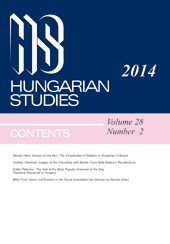Maria Theresa’s Urbarial Patent: Royal Conscience and Enlightened Habsburg Economic Policy
Maria Theresa’s Urbarial Patent: Royal Conscience and Enlightened Habsburg Economic Policy
Author(s): György KuruczSubject(s): 18th Century
Published by: Akadémiai Kiadó
Keywords: Maria Theresa; Count Wenzel Anton Kaunitz; Pál Festetics; taxation; reform policy; peasant rights and obligations; modern landownership
Summary/Abstract: This paper is intended to shed some light on several aspects of Queen Maria Theresa’s urbarial regulation introduced in the Kingdom of Hungary after 1767. The author argues that her chief councillor’s, Count Kaunitz’s stance on the tax free status of the Estates of the Kingdom of Hungary largely influenced the Queen’s attitude to the Hungarian nobility, but her motifs of being compelled to protect the peasantry against seigneurial excesses were truely based on her Christian consience as well. At the same time, he also argues that the process of elaborating on a system of peasant rights and obligations towards their landlords were quite revealing of the discontent mood of contemporary Hungarian society. Finally, the paper conludes that the various provisions of the urbarial regulation of 1767 worked out by the Queen’s councillor on Hungarian affairs, Pál Festetics, had long lasting effects on the evolvement of Hungary’s land ownership rights even after the abolition of feudalism in 1848.
- Issue Year: 32/2018
- Issue No: 2
- Page Range: 263-272
- Page Count: 10
- Language: English
- Content File-PDF

